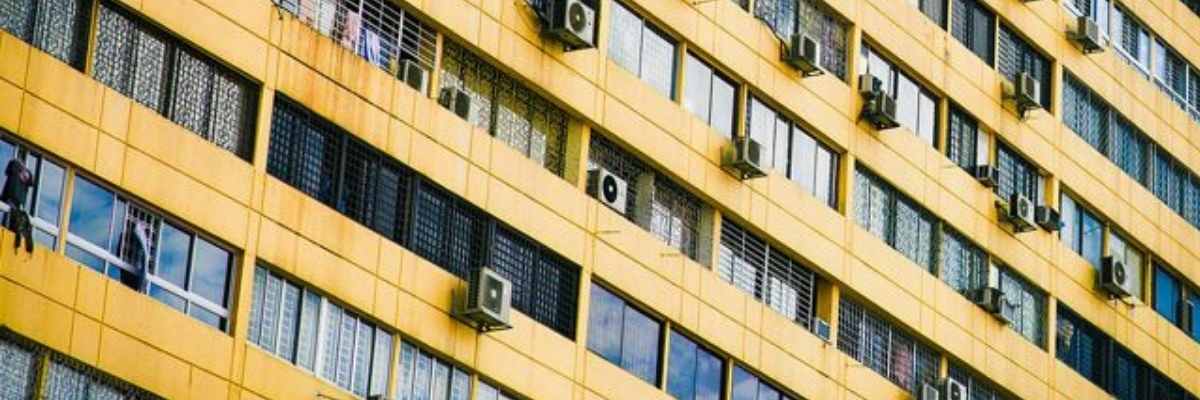
One of the main questions when installing an air conditioning unit is whether it complies with the general regulations for installation on exterior walls. If it doesn’t, it may disturb both the user and others. That’s why it’s important to understand the role of minimum distances between air conditioning units and neighbours’ windows in these regulations.
Índice de contenidos
What’s the minimum distance allowed between an air conditioner and a neighbour’s window?
Noise is one of the biggest problems associated with installing air conditioners on the exterior walls of buildings. Air conditioners have both an external and an internal unit, potentially causing unwanted noise. In any case, installing an air conditioner always requires the approval of the community of owners, provided that urban planning limitations allow it and the exterior wall is not protected.
Allowable distances between an air conditioner and nearby windows are based on the sum of the discharge flows from its unit or units. These flows must never exceed, 3600 m3/hour. Therefore, the minimum allowable distance is 2.50 m for upper floor windows and 2 m for windows on the same level as the air conditioner.
Things to take into account before installing an air conditioner
Remember there is another series of guidelines when installing an air conditioner on an external wall.
Where can I put it?
External air conditioning units must be installed in a safe place around 10 to 20 metres from the split. They must be easily accessible to ensure proper maintenance. Finally, the air conditioning compressor must be firmly attached to supports or brackets fixed to the exterior wall. This means making sure that the brackets are rated to withstand the weight and inclement weather. Remember that you can go through MiServ, to find the tradesperson you need to install your air conditioner.
Minimum noise requirements
Don’t forget that minimum noise requirements apply when installing an air conditioning unit. Although air conditioners these days are practically silent, it’s important to understand where the limits are. This means knowing the noise laws in your autonomous community, and understanding the differences between residential and industrial zones and decibel limits permitted during the day and at night. As a reference point, the WHO sets a maximum of 65 dB during the day and 55 dB as an appropriate noise level during the night. This article tells you when you’re allowed to make noise at home. Make sure to read it!
Air conditioning installation regulations
Certificates
You should always have your air conditioning unit installed by a certified professional. What does this mean? It means someone certified by the Department of Industry, Energy and Mines (Dirección General de Industria, Energía y Minas) to work with these kinds of devices. After finishing the job, the installer will need to issue a certificate containing details such as the model and serial number of the units installed, the type of coolant, the name and licence number of the operator etc.
If you choose to buy your air conditioner at a major retail outlet, the seller must give you a sheet that you need to have signed and then return. The sheet will contain a document that needs to be completed by the installer within a year from the purchase date.
Are you thinking about installing an air conditioner and don’t know anyone who can do it? Miserv offers a range of trusted professionals for your home or community. Or, if you prefer, you can contact your Mediterráneo property administrator for advice.